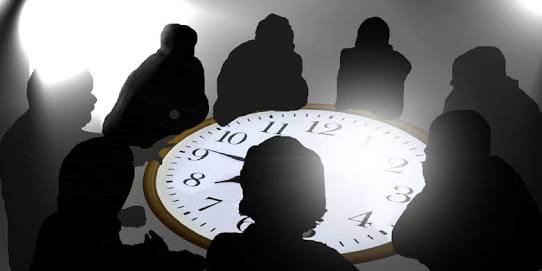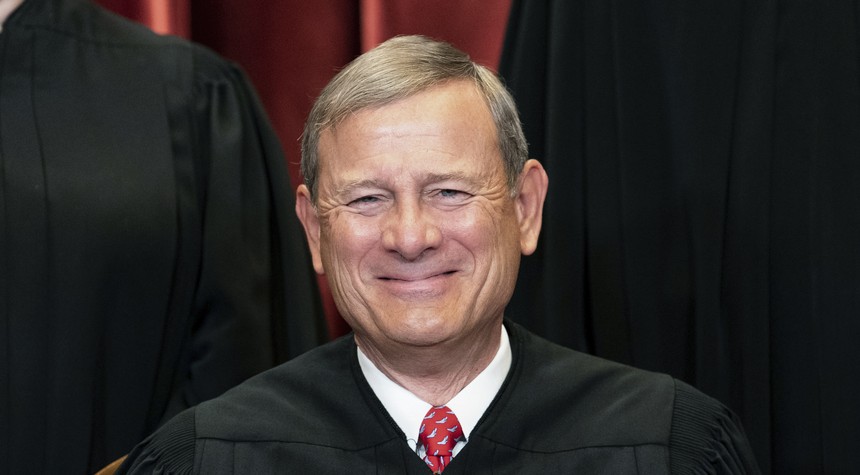A dirty little secret about January 6—one of many—is that Democrats and establishment Republicans, not Trump supporters, wanted to shut down the official proceedings of that day.
Just as the first wave of protesters breached the building shortly after 2 p.m., congressional Republicans were poised to present evidence of rampant voting fraud in the 2020 presidential election. Ten incumbent and four newly-elected Republican senators planned to work with their House colleagues to demand the formation of an audit commission to investigate election “irregularities” in the 2020 election. Absent an audit, the group of senators, including Ted Cruz (R-Texas) and Ron Johnson (R-Wis.) pledged to reject the Electoral College results from the disputed states.
The Hail Mary effort was doomed to fail; yet the American people would have heard hours of debate related to provable election fraud over the course of the day.
And no one opposed the effort more than ex-Senate Majority Leader Mitch McConnell (R-Ky.).
During a conference call on December 31, 2020, McConnell urged his Republican Senate colleagues to abandon plans to object to the certification, insisting his vote to certify the 2020 election results would be “the most consequential I have ever cast” in his 36-year Senate career.
From the Senate floor on the afternoon of January 6, McConnell gave a dramatic speech warning of the dire consequences to the country should Republicans succeed in delaying the vote. He downplayed examples of voting fraud and even mocked the fact that Trump-appointed judges rejected election lawsuits.
“The voters, the courts, and the States have all spoken,” McConnell insisted. “If we overrule them, it would damage our Republic forever. If this election were overturned by mere allegations from the losing side, our democracy would enter a death spiral.”
Roughly six hours later, McConnell got his way. Cowed by the crowd of largely peaceful Americans allowed into the building by Capitol police, most Republican senators backed off the audit proposal. McConnell, echoing hyperbolic talking points about an “insurrection” seeded earlier in the day by Democratic lawmakers and the news media, gloated. “They tried to disrupt our democracy,” hhe declared n the Senate floor after Congress reconvened around 8 p.m. “This failed attempt to obstruct Congress, this failed insurrection, only underscores how crucial the task before us is for our Republic.”
Congress officially certified the Electoral College results early the next day.
While he projected a sober tone to the American public, McConnell privately was ecstatic, a new book about the 2020 election reveals. “I feel exhilarated by the fact that this fellow finally, totally discredited himself,” McConnell told New York Times reporter Jonathan Martin late on January 6, 2021 about Trump. Martin is the co-author of This Will Not Pass, of which excerpts were published in the Washington Post this week. Martin in the book recounts his midnight conversation with McConnell.
Trump, McConnell claimed, “put a gun to his head and pulled the trigger,” Martin writes. He then asked the reporter what he had heard about members plotting to invoke the 25th Amendment. Calling Trump a “despicable person,” McConnell reportedly bragged how he “crushed the sons of bitches” on January 6 and promised to do the same to them in the 2022 primaries.
Now, that seems like an oddly celebratory demeanor for someone who just survived an “attack on our democracy” and an alleged attempt to “overthrow” the seat of government power, doesn’t it? And why was McConnell so certain the four-hour disturbance would spell the end for Donald Trump?
Further—and more importantly—why did McConnell’s office fail to protect the Capitol on January 6?
His Sergeant at Arms at the time served on the U.S. Capitol police board, a four-man body that manages security at the sprawling Capitol complex. McConnell appointed Michael Stenger in 2018 to serve in that role; Stenger, in addition to his House counterpart, Paul Irving, rejected multiple requests by the Capitol Police chief for extra help in advance of January 6.
Steven Sund, a Capitol Police captain, said he spoke with Stenger on January 4, 2021 to ask for National Guardsmen. “Instead of approving the use of the National Guard, however, Mr. Stenger suggested I ask them how quickly we could get support if needed and to ‘lean forward’ in case we had to request assistance on January 6.”
He spoke with Stenger again on January 5; the board still refused to advance his plan for extra guardsmen.
As the chaos unfolded right as the joint session of Congress convened on January 6, Sund said he “notified the two Sergeant at Arms by 1:09 p.m. that I urgently needed support and asked them to declare a State of Emergency and authorize the National Guard.” Stenger and Irving, who were together that afternoon, said he was waiting for “authorization” by congressional leadership.
That approval came an hour later, but with a caveat: Sund also needed the Pentagon’s authorization.
“Almost two hours later, we had still not received authorization from the Pentagon to activate the National Guard,” Sund testified in February 2021. “Mr. Stenger offered to have Senator McConnell call the Secretary of the Army to expedite the request. I agreed that this would be a good idea. I followed up approximately 20 minutes later to check on the call and express the need for leadership to call to assist in expediting the request.”
Guardsmen did not arrive until 5:40 p.m., four-and-a-half hours after Sund’s first dispatch and after the protest had ended.
McConnell, House Speaker Nancy Pelosi (D-Calif.), and D.C. Mayor Muriel Bowser—the three leaders responsible for protecting the Capitol on January 6—still have not explained their failure to do so. Not only did McConnell’s top law enforcement officials purportedly overlook the potential for violence on January 6, he denied requests for more officers days before and delayed sending guardsmen to Capitol Hill that afternoon.
And it will be nearly impossible to find out why: Stegner, along with Irving and Sund, all resigned on January 7, 2021.
So, perhaps there is a darker explanation for McConnell’s giddiness on January 6. What unfolded that day on McConnell’s watch ended Republican demands for an election audit; criminalized criticism of the 2020 election, which McConnell still describes as “fair” and legitimate; vilified Republican lawmakers; and prompted Trump’s second impeachment. McConnell also believed the protest would spell the end of the Trump movement, something the Beltway crony long attempted to quash.
Like the Biden regime, congressional Democrats, and the national news media, the aftermath of the Capitol protest achieved all sorts of political ends for Mitch McConnell.
And when it comes to January 6, there are no coincidences.





 In July of 2021 the first admission of the official agenda behind the public-private partnership was made public {
In July of 2021 the first admission of the official agenda behind the public-private partnership was made public {




